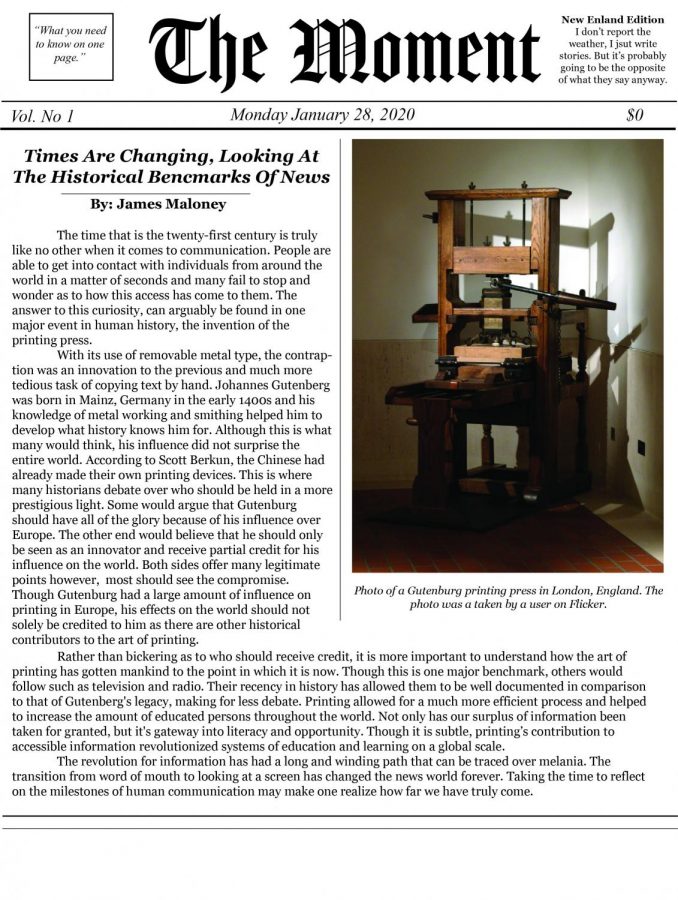Times Are Changing, Looking At The Historical Benchmarks Of News
February 10, 2020
The time that is the twenty-first century is truly like no other when it comes to communication. People are able to get into contact with individuals from around the world in a matter of seconds and many fail to stop and wonder as to how this access has come to them. The answer to this curiosity, can arguably be found in one major event in human history, the invention of the printing press.
With its use of removable metal type, the contraption was an innovation to the previous and much more tedious task of copying text by hand. Johannes Gutenberg was born in Mainz, Germany in the early 1400s and his knowledge of metal working and smithing helped him to develop what history knows him for. Although this is what many would think, his influence did not surprise the entire world. According to Scott Berkun, the Chinese had already made their own printing devices. This is where many historians debate over who should be held in a more prestigious light. Some would argue that Gutenburg should have all of the glory because of his influence over Europe. The other end would believe that he should only be seen as an innovator and receive partial credit for his influence on the world. Both sides offer many legitimate points however, most should see the compromise. Though Gutenburg had a large amount of influence on printing in Europe, his effects on the world should not solely be credited to him as there are other historical contributors to the art of printing.
Rather than bickering as to who should receive credit, it is more important to understand how the art of printing has gotten mankind to the point in which it is now. Though this is one major benchmark, others would follow such as television and radio. Their recency in history has allowed them to be well documented in comparison to that of Gutenberg’s legacy, making for less debate. Printing allowed for a much more efficient process and helped to increase the amount of educated persons throughout the world. Not only has our surplus of information been taken for granted, but it’s gateway into literacy and opportunity. Though it is subtle, printing’s contribution to accessible information revolutionized systems of education and learning on a global scale.
The revolution for information has had a long and winding path that can be traced over melania. The transition from word of mouth to looking at a screen has changed the news world forever. Taking the time to reflect on the milestones of human communication may make one realize how far we have truly come.


